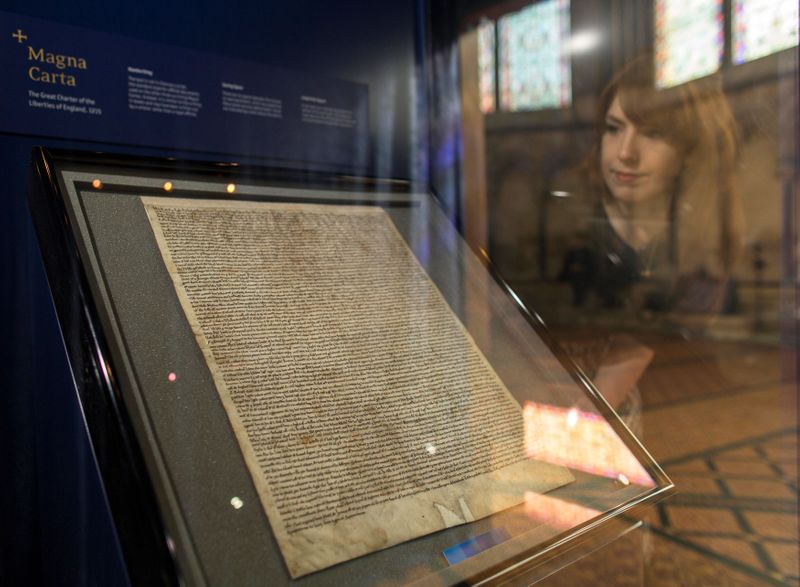LONDON (Reuters) - A man who tried steal an original copy of the 1215 Magna Carta, considered to be one of the most important documents in the history of democracy, from an English cathedral was found guilty on Thursday of criminal damage and attempted theft.
Mark Royden, 47, had denied smashing a glass box housing the priceless manuscript in Salisbury cathedral in southern England in 2018.
Salisbury Crown Court heard he had set off a fire alarm in the cathedral cloisters before stunning visitors by hitting the glass case with a hammer, causing three holes in it and damage estimated at 14,000 pounds ($18,400).
Failing to break through the safety glass, he tried to run out of the cathedral but was grabbed by maintenance workers and visitors, including an American tourist.
The parchment, one of only four original copies still surviving, was not damaged.
A key manuscript in English history, the Magna Carta is a charter of citizens' rights curbing the arbitrary power of medieval kings which among other things guaranteed the right to a fair trial.
King John agreed to place his seal on the document in June 1215 at Runnymede near Windsor, west of London, as a means of ending an uprising by rebel barons.
Prosecutors said when questioned by police Royden had appeared to question the authenticity of the document.
"The historical importance of the Magna Carta in establishing the right to justice cannot be overstated – which is somewhat ironic given Mark Royden’s repeated denials of his crime in the face of overwhelming evidence," said Rob Welling of the Crown Prosecution Service said.
"Had he succeeded in taking it, Royden would have deprived the nation of what is said to be the most beautiful surviving copy from 1215."

Royden was released on bail and will be sentenced at a later date. The charter is back on display in Salisbury cathedral.